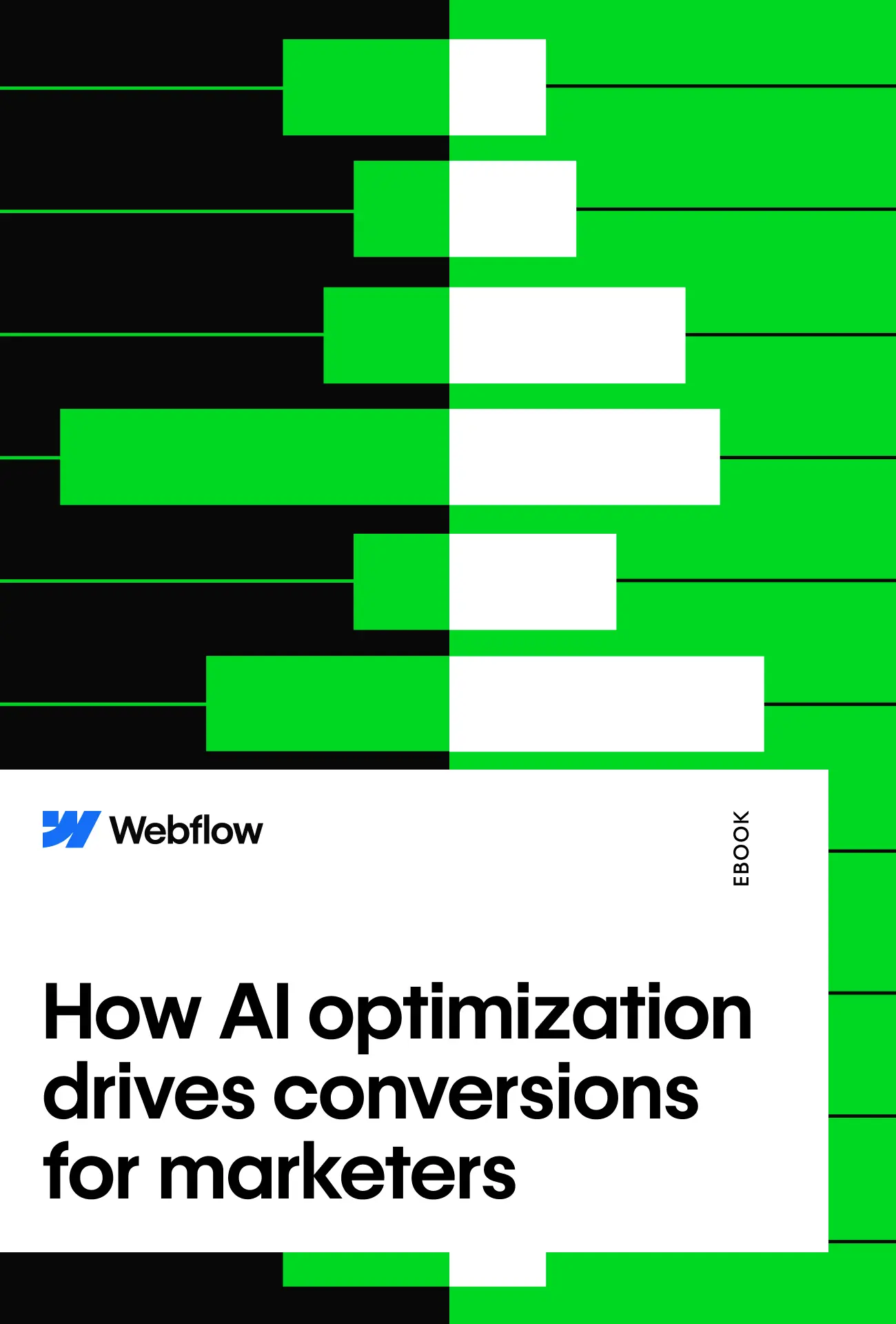How AI optimization drives conversions for marketers
The impact of AI on marketing

Thank you for downloading!
The ebook opened in a new tab, and we sent a copy of it to your email.
About this ebook
Today, AI is transforming how organizations and workers operate, how consumers make purchasing decisions, and the speed with which the modern world can innovate.
Consequently, the technology we use to operate websites is changing at a rapid pace and impacting the overall customer experience. Businesses that use AI are delivering one-to-one personalized experiences at scale — turning casual website browsers into loyal customers by meeting them where they are in their journey. In short, AI is transforming how we design, build, manage, and optimize websites.
In this ebook we explore:
- The impact of AI on marketing
- How AI is creating experiences and driving revenue for marketers
- How AI can help CMOs drive efficiencies
- How to choose AI solutions responsibly
Schedule a demo
Build better websites — faster — with the power of Webflow. Backed by advanced security, custom traffic scaling, guaranteed uptime, and much more.
Build better websites — faster — with the power of Webflow. Backed by advanced security, custom traffic scaling, guaranteed uptime, and much more.
























